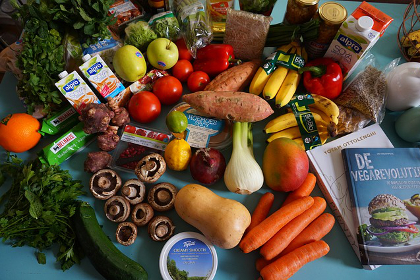
Roberts, Stabenow Reach Deal on GMO Labeling
WASHINGTON, June 23, 2016 - A landmark Senate agreement on national disclosure standards for genetically engineered foods would allow companies to disclose GMO ingredients through digital codes rather than on-package language or symbols.
The agreement, reached between Senate Agriculture Chairman Pat Roberts, R-Kan., and ranking Democrat Debbie Stabenow of Michigan, also would use a narrow definition of genetic engineering that would exempt the newest biotech methods such as gene editing from the national disclosure standards.
Both the definition and the option for digital codes rather than on-package labeling represent major victories for farm interests, biotech developers and food companies that have long resisted mandatory GMO labeling out of fear that it would stigmatize the technology.
June 23, 2016 | Source: AgriPulse | by Philip Brasher
WASHINGTON, June 23, 2016 – A landmark Senate agreement on national disclosure standards for genetically engineered foods would allow companies to disclose GMO ingredients through digital codes rather than on-package language or symbols.
The agreement, reached between Senate Agriculture Chairman Pat Roberts, R-Kan., and ranking Democrat Debbie Stabenow of Michigan, also would use a narrow definition of genetic engineering that would exempt the newest biotech methods such as gene editing from the national disclosure standards.
Both the definition and the option for digital codes rather than on-package labeling represent major victories for farm interests, biotech developers and food companies that have long resisted mandatory GMO labeling out of fear that it would stigmatize the technology.
The legislation, which will need 60 votes to pass the Senate, would nullify Vermont’s first-in-the-nation GMO labeling law, which takes effect July 1 and would bar any other state from enacting labeling requirements that differ from the federal standards. A copy of the bill was obtained by Agri-Pulse.
Under the legislation, most food companies would have the option of disclosing GMO ingredients through either a digital, smartphone code, the industry’s preference, or through an on-package symbol or language that the Agriculture Department would approve. The code would be accompanied by: “Scan here for more food information.”
Small companies would have the option of putting a phone number or website URL on labels instead of the digital code.
The Vermont law requires products with biotech ingredients to be labeled as produced or partially produced with genetic engineering. Such text would be optional under the Roberts-Stabenow deal.
The definition of genetic engineering, or “bioengineering,” would be restricted to traits developed through recombinant DNA techniques, which involve transferring a gene from one organism to another. Techniques such as RNA interference as well as gene editing would be exempt.
The agreement is the result of months of on-and-off negotiations that followed the failure of a committee-passed bill to pass the Senate in March when a motion to advance the measure failed, 48-49, far short of the 60-vote majority needed.
Senators were briefed on the agreement Thursday morning, but the Senate likely won’t consider the deal before next week. The House, which is on break until July 5, also would have to approve the legislation since it differs dramatically from bill that chamber passed last July.
